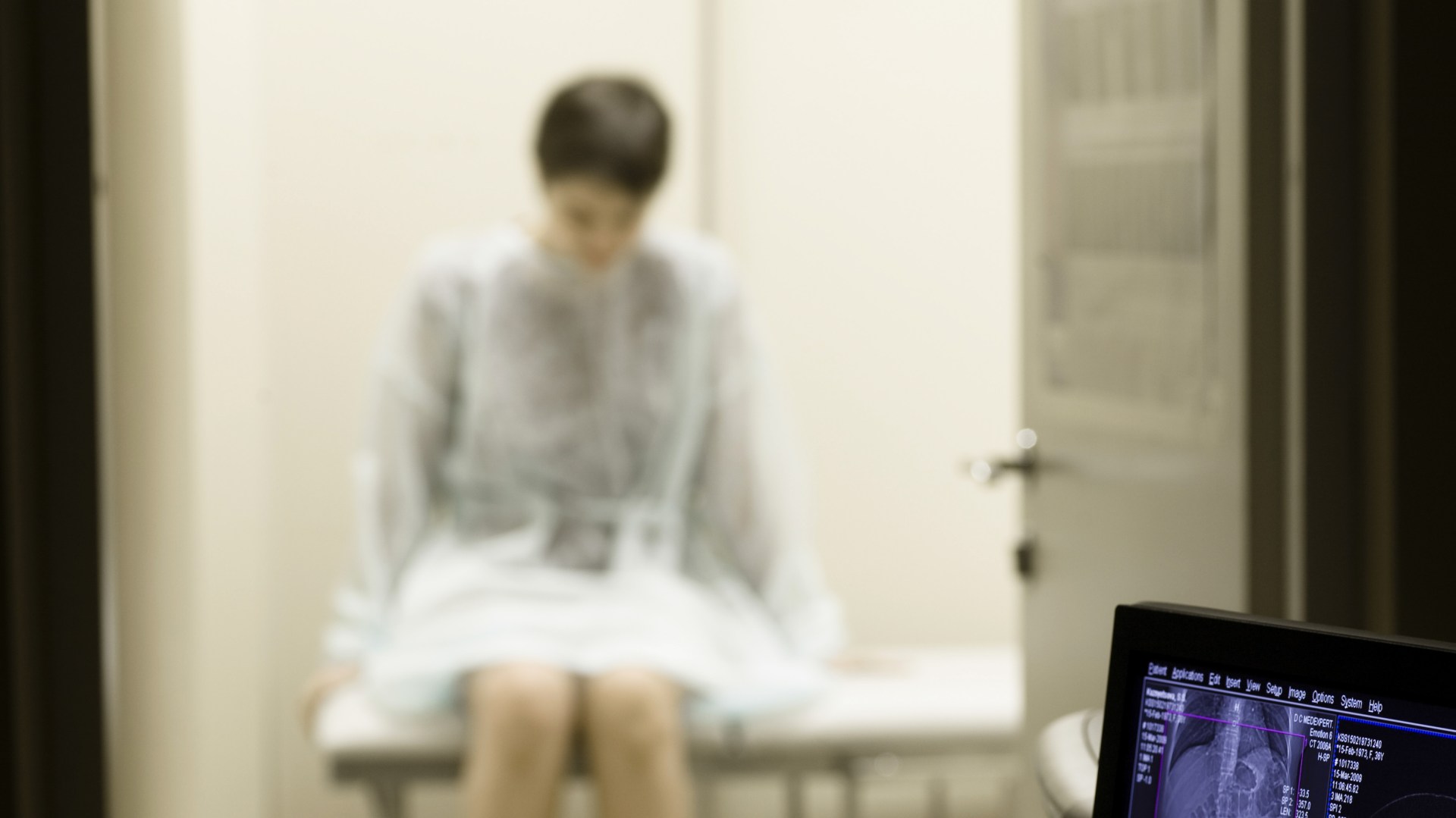On behalf of Care Net, a national network of crisis pregnancy centers, LifeWay Research surveyed more than 1,000 American women who have terminated one or more of their pregnancies.
Here’s what evangelicals and churchgoers, defined as those attending church once a month or more, as well as all women who have had abortions, said:
Church Attendance at Time of First Abortion
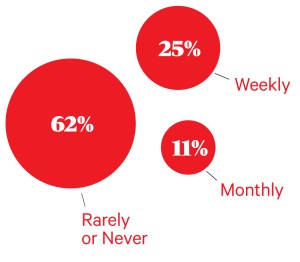
2 in 3 evangelicals were attending monthly or more. [Note: "Evangelicals" based on self-identification.]
Judgment vs. Care
Both churchgoers and non-churchgoers equally reported receiving or expecting reactions from local churches that were "judgmental" (1 in 3) or "condemning" (1 in 4).
But churchgoers were much more likely than non-attenders to report or expect reactions that were "caring" (31% vs. 7%), "helpful" (28% vs. 7%), "loving" (25% vs. 6%), and "informative" (17% vs. 5%).
Still, less than one-third of churchgoers said they received or expected such positive reactions from their local church.
Reaction of Local Church (Received or Expected)
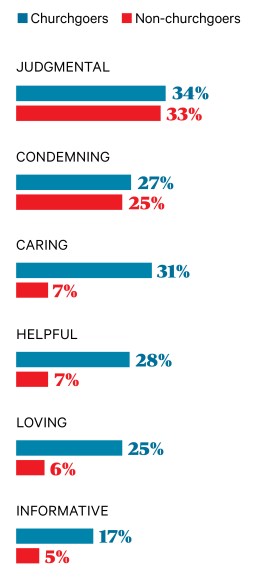
In the Secret, Quiet Place
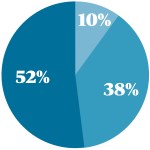
52% of churchgoers say no one at church knows they terminated a pregnancy.38% say someone at church does know (including 55% of evangelicals).10% don't know if someone at church knows or not.
Who Churchgoers Were Most Likely to Consult
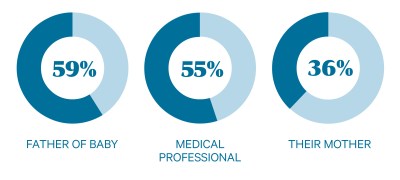
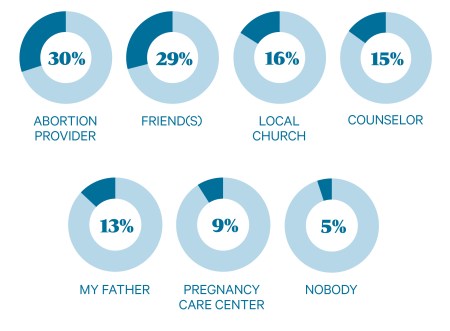
Of note: Evangelicals were significantly more likely than non-evangelicals to consult their mother before aborting (40% vs. 31%). Churchgoers were unlikely to consult their local church (16%) or a crisis pregnancy care center (9%).
Who Was Most Influential on Decision to Abort:
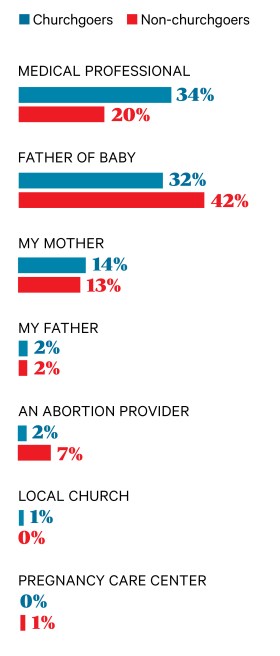
Influence of the Local Church
Those who said local churches had "no influence" on their decision to terminate their pregnancy:

[Note: Based on self-identification. "Protestants" include those who said "nondenominational."]
Women Who Have Aborted Believe That:

It is safe to talk with a local pastor about abortion.

Pastors’ teachings on forgiveness don’t seem to apply to terminated pregnancies.

Pastors are sensitive to the pressures women face with unplanned pregnancies.

Churches are a safe place to talk about pregnancy options.

Churches do not have a ministry prepared to discuss options during an unplanned pregnancy.

Churches are prepared to provide support to women who chose to keep a child from an unplanned pregnancy.

Church members are more likely to gossip about women considering abortion than to help them understand options.
Additional findings can be viewed at LifeWay Research and Facts & Trends.
Q&A: A Church-Based Solution
When Roland Warren and his wife, Yvette, were students at Princeton University, the dating couple faced a dilemma: Yvette became pregnant. A health counselor suggested she have an abortion, saying she would never graduate with a child in tow. The counselor was wrong: Roland and Yvette (who later became a doctor) married, and she graduated as the mom of two children. Warren brings his experience to his work as CEO of Care Net, a 40-year-old national network of crisis pregnancy centers.
CT senior editor for global journalism Timothy C. Morgan spoke to Warren about the recent LifeWay Research survey, sponsored by Care Net.
What’s the most surprising or thought-provoking finding here?
The father of the child is so significant in this decision. When women were asked who they were likely to talk to about their decision, 61 percent said the father—more than medical professionals, abortion providers, mothers, girlfriends, friends—was the one they were most likely to talk to.
When a woman tells a guy that she’s pregnant, I believe that somewhere deep inside of her, she hopes he’ll respond the same way Joseph responded to Mary: I’ll be a husband to you, and a father to the child growing inside of you.
Also, the finding that many women were attending church at the time they had their abortion. We talk about defunding Planned Parenthood. We can defund Planned Parenthood if Christians stop having abortions themselves. There are about 1 million abortions a year [in the United States]. Roughly 650,000 are women who profess to be Christians in some way, shape, or form.
Say some of those folks are cultural Christians—then cut that figure in half. That still leaves a significant number of Christians having abortions, and the average abortion costs $500. Do the math: Christians are providing more than $100 million to the abortion industry.
What keeps Christian women from seeking help during an unplanned pregnancy?
One big issue is shame. There is a woman in Care Net’s office who had an abortion. She had gone to church all her life. When she was growing up, a young lady in church got pregnant, and they [church leaders] had her come up before the entire congregation. This woman remembered that moment and said, “I’m not going to be that girl. I’m not going to let that happen.”
Mary [mother of Jesus] didn’t make value judgments about the baby growing inside of her. She knew that how she got pregnant had no bearing on the worth of the child growing inside her. But that’s not what we do.
What can churches do to change that perception problem?
If you have a drug problem, a porn problem, a marriage problem, a problem with finances, there’s typically a ministry on-ramp that connects you to support. But if you find out Sunday morning that you’re pregnant and you walk into a church, exactly whom do you tell? In most cases, there’s no on-ramp to ministry. If you look at all the reasons women have abortions—economic issues, housing, the father doesn’t have a job—there are people in the body of Christ who can help.

